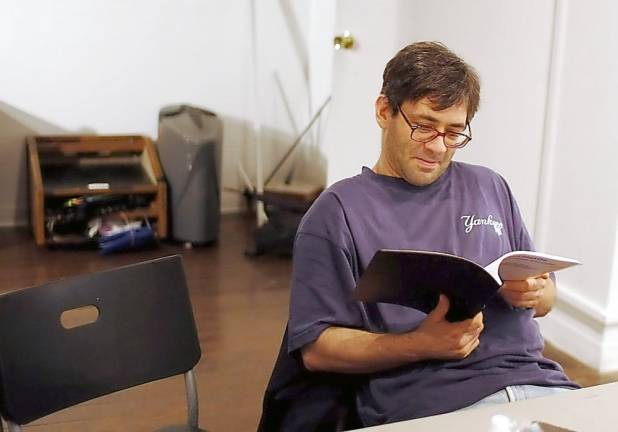Samuel Delany, first major Black sci-fi novelist, to explore ‘The Milford Connection’
Milford. The Milford Readers and Writers Festival will broadcast a conversation between two sci-fi literary giants, Samuel Delany and Gordon Van Gelder, in a Sept. 13 livestream.





Editor’s note: The original story gave the wrong date for the livestream, which is on Sept. 13, not Nov. 13, as was erroneously stated. The Courier regrets the error.
The Milford Writers’ Conference, started here in the 1950s by Virginia Kidd, her husband, James Blish, and Damon Knight, was world-famous. Sci-fi writers would gather at Arrowhead, the home of Kidd and Blish, and eat, breathe, and sleep science fiction. The conference became known for its method of critiquing colleagues’ writing, known as the “The Milford Method,” which has been adapted for use in other genres and throughout the world.
In 1965, Kidd established the Virginia Kidd Literary Agency at Arrowhead, located then, and to this day, at 538 East Harford Street. The agency is still very much in the forefront of the science fiction world. Christine Cohen, senior agent, handles book and film rights and is often the spokesperson for the agency. William Reeve handles short fiction, domestic fiction, and new clients, and Vaughne Hansen handles major publishing houses and electronic rights.
The agency has represented some of the most famous names in sci-fi publishing over the years. In fact, they helped arrange the sci-fi streaming session at the Milford Readers and Writers Festival to be held on Saturday, Sept. 13, at 1 p.m. This conversation between two sci-fi literary giants -- Samuel Delany and Gordon Van Gelder -- will be broadcast live on festival’s Facebook page as well as on Twitter and You Tube.
The session is championed by Dr. Lillian Longendorfer, herself a sci-fi author and aficionado, as well as a festival board member. She will field the audience Q&A with the help of fellow board member Barbara Zappile.
Van Gelder, editor and publisher of the Magazine of Fantasy and Science Fiction, has won the prestigious Hugo award twice for best editor. “He is very familiar, he treats everyone the same, and has a talent for drawing people in,” Cohen said of Van Gelder.
He will be in conversation with Delany, one of the most prolific and well-known sci-fi writers in the world today. Van Gelder and Delany are colleagues and have known each other for years. Their talk is titled “Science Fiction and the Milford Connection.”
A visionary novelist
Delany is a powerhouse novelist and critic who actually attended the Milford Writer’s Conference and was a colleague of Kidd and Knight. In fact, Chip -- his self-appointed nickname, which everyone calls him -- was chosen as the 31st Damon Knight Memorial Foundation Grand Master by the Science Fiction and Fantasy Writers of America. He has published more than 40 works, of which only 23 or 24 are novels.
He wrote his first novel, “The Jewels of Aptor,” when he was 20. The rest are essays, literary criticism, philosophical fiction, textbooks (“About Writing,” “Times Square Red,” and “Times Square Blue”), and a book- length autobiographical essay called “The Motion of Light in Water.”
Delany taught literature and creative writing at the University of Massachusetts and Temple University, and had won four Nebula Awards (given by sci-fi writers) and a Hugo award (given by sci-fi readers) by the time he was 27. This is all the more impressive since he was extremely dyslexic and had extensive therapy for this from the age of 8 to 16.
Delany was the first major African American science fiction writer as well as one of the most influential writers of this genre in the United States. His daring and visionary novels transformed the field in the ‘60s and ‘70s. Chip was also chosen by the Lambda Literary Report as one of the 50 people who “had done the most to change our view of gayness in the last half century.”
Delany’s “Babel-17” won the Nebula Award, and “Dhalgren” had 19 printings and sales pushing two million. All his books are available as both e-books and paperback editions. For more information, go to samueldelany.com.
“The science fiction genre is continually changing to reflect the social, economic, and political trends of the time,” Longendorfer said.
It should be very interesting to watch Van Gelder and Delany passionately talk about that.
Editor’s note: This story has also been updated to correct an error related to the sales of “Babel-17” and “Dhalgren.”
“The science fiction genre is continually changing to reflect the social, economic, and political trends of the time.” --Dr. Lillian Longendorfer